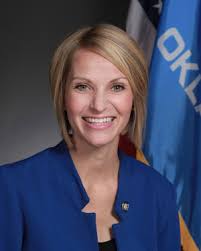Hicks files bills to reduce cost of diabetes in Oklahoma
Mike Seals - January 27, 2021 11:01 am

Senator Carri Hicks
OKLAHOMA CITY – In Oklahoma, more than 450,000 adults, or over 14% of the adult population, has diabetes with more than one million having prediabetes according to the American Diabetes Association. As the mother of a son with Type 1 diabetes and the co-chair of the Legislative Diabetes Caucus, Sen. Carri Hicks, D-Oklahoma City, knows how expensive treatment can be, and wants to help Oklahomans by reducing the cost and burden of the disease. She explained one of the main problems is that public and private health plans generally cover long-term diabetes complications, including amputations, blindness, end stage renal disease, heart attack and stroke, but not individualized care.
“The pandemic has added urgency to the state’s dire need to address comprehensive health care reform across the individual, small group, public and employer-based health coverage markets. This has been especially true for individuals with diabetes who have greater risks from COVID-19,” Hicks said. “Affordable insulin is the bedrock of diabetes management for one in three people with diabetes – but insulin is only one piece in a mosaic of medicines, medical devices, software, supplies, services, medical nutrition therapy and diabetes self-management education and support the disease demands.”
Hicks has filed seven bills that address copay caps, rebates pass-through, transparency in billing, IRS federal guidance, Standards of Care and non-medical switching.
- SB 979 caps the total cost for a 30-day supply of insulin at $25 and a 30-day supply of related FDA-approved diabetes equipment and supplies at $100
- SB 721 creates the Access to Lifesaving Medicines Act and requires all discounts, rebates, price concessions, and fees related to a prescription medication claim to be passed on to the consumer at the point of sale.
- SB 165 directs the Oklahoma Insurance Department (OID) to compile a list of prescription drugs deemed essential for treating diabetes and the cost of those drugs annually.
- SB 589 requires drug manufacturers to notify OID of certain diabetes drug price increases.
- SB 990 allows insured individuals under private high deductible health care plans covering diabetes equipment, supplies and related services to set aside funds tax-free for certain out-of-pocket medical expenses.
- SB 861 requires Oklahoma health insurance coverage to be consistent with the Standards of Care from the American Diabetes Association.
- SB 468 prohibits changes to prescription drug coverage once authorized by the insurer.
“Now is the time to invest in prevention,” Hicks said. “The shift is better for everyone, and a wiser investment of health care dollars for payers, especially in the face of a diabetes epidemic.”



